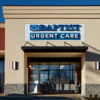Find Hepatitis test
in Memphis, TN.
Own a clinic? Add your location.
Help patients book appointments with you on Solv. It's free!
7 instant-book locations

AFC Urgent Care, Memphis
AFC Urgent Care

Baptist Urgent Care, Horn Lake, MS
Baptist Urgent Care

Baptist Urgent Care, Germantown
Baptist Urgent Care

Baptist Urgent Care, Olive Branch
Baptist Urgent Care

Baptist Urgent Care, Bartlett, TN
Baptist Urgent Care

Baptist Urgent Care, Collierville, TN
Baptist Urgent Care

Quest Diagnostics
Quest Diagnostics
Self-pay pricing
Clear self-pay prices
No more surprise bills. Solv is committed to making getting healthcare as easy as buying groceries at the store, including knowing the price of care upfront.
Urgent Care Travel, LLC
Urgent Care Travel, LLC
Baptist Minor Medical Centers
Baptist Minor Medical Centers
New Life Medical Center
New Life Medical Center
People First Urgent & Primary Care, Germantown
People First Urgent & Primary Care

Urgent Care of Saint Francis , Collierville
Urgent Care of Saint Francis
Own a clinic? Add your location.
Help patients book appointments with you on Solv. It's free!
About Hepatitis test
Who should get tested for hepatitis?
Anyone who has been exposed to the hepatitis virus, either through sexual contact, sharing needles, or from a mother to her baby during birth, should get tested. It is also recommended for individuals who have traveled to areas with high rates of hepatitis, those who have been incarcerated, and people with HIV. According to the CDC, people born between 1945 and 1965, often referred to as baby boomers, are five times more likely to have hepatitis C and should get tested.
Importance of getting tested
Getting tested for hepatitis is crucial as it can lead to serious health problems like liver disease and cancer if left untreated. Early detection can help prevent these complications and stop the spread of the virus. In addition, getting tested can provide peace of mind and help individuals make informed decisions about their health.
Hepatitis testing options in Memphis, TN:
Urgent care and walk-in clinics
Urgent care centers like AFC Urgent Care on Poplar Ave offer hepatitis testing. They are a convenient option as they often have same-day appointments available, which can be booked through Solv’s website and mobile app.
Primary care providers
Primary care providers can also provide hepatitis testing. If you have a long-standing relationship with your doctor, this may be a comfortable and convenient option for you.
Free STD testing and community health centers
Community health centers in Memphis offer free or low-cost hepatitis testing, making it accessible for those with financial constraints.
At-home testing
At-home testing kits are another option for those who prefer privacy. These kits can be ordered online, used at home, and then mailed to a lab for analysis.
Prevalence of hepatitis in Memphis
According to the CDC, the prevalence of hepatitis in Memphis is higher than the national average. This could be due to a number of factors including higher rates of drug use, unprotected sex, and lack of access to healthcare.
Risk factors related to hepatitis in Memphis
Risk factors for hepatitis in Memphis include unprotected sex, sharing needles, and having multiple sexual partners. Other factors include being born between 1945 and 1965, having HIV, and being incarcerated.
Other STDs in Memphis
In addition to hepatitis, other common STDs in Memphis include gonorrhea, chlamydia, HIV, and syphilis. The rates of these STDs are also higher than the national average. Regular testing for all STDs is recommended for those who are sexually active and at risk.
Solv has strict sourcing guidelines and relies on peer-reviewed studies, academic research institutions, and medical associations. We avoid using tertiary references.
Related Searches
DOT Exam in Memphis
Ear Wax Removal in Memphis
Sports Physicals in Memphis
A1C Test in Memphis
Allergy Testing in Memphis
Basic Metabolic Panel in Memphis
CMP Test in Memphis
Diabetes Test in Memphis
Diagnostic Test in Memphis
H Pylori Test in Memphis
Hepatitis test in Memphis
Lab Tests in Memphis
Mono Test in Memphis
Pregnancy Test in Memphis
Pulmonary Function Test in Memphis
RSV Test in Memphis
STD Testing in Memphis
Strep Test in Memphis
TB Test in Memphis
Thyroid Test in Memphis
Vitamin D Test in Memphis
Aetna Urgent Care
Blue Cross Blue Shield Urgent Care
Cigna Urgent Care
COVID-19
Flu
United Health Urgent Care
» All services in MemphisFind hepatitis test
Nearby cities
Everyday Healthcare, Simplified
Expert advice to help you live your best life




![Accident Prone: Common Holiday Accidents [INFOGRAPHIC]](https://ucl-cdn-prod.thirdparty.solvhealth.com/dir/media/W1siZiIsIjIwMTMvMTAvMjYvMTBfNTJfMTRfMjQ1X2hvbGlkYXlfYWNjaWRlbnRzLnBuZyJdLFsicCIsInRodW1iIiwiMzAweCJdXQ?sha=ace44d1b024a1586)


